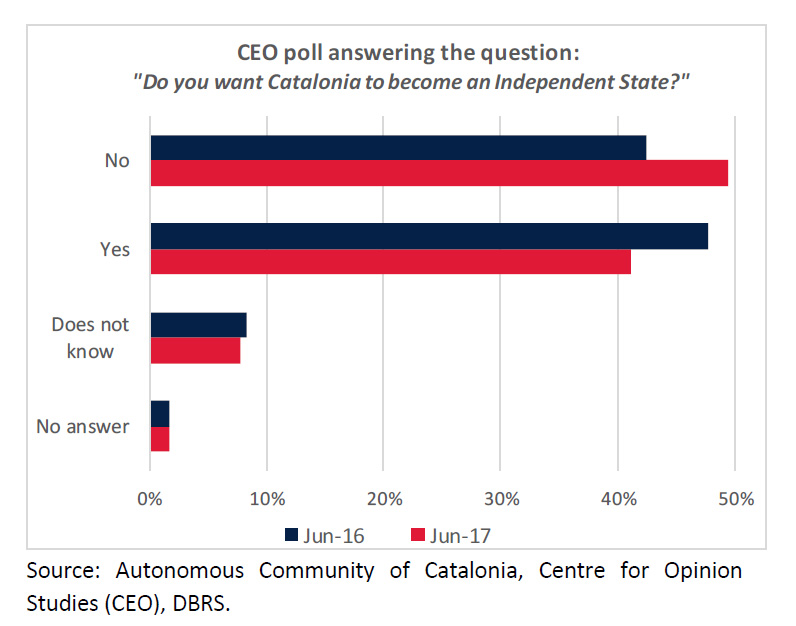Under DBRS’s most likely scenario, (DBRS is an Independent credit ratings agency), Spain is expected to preserve its unity over the medium-term. This largely reflects the opposition of the national government to Catalonia’s independence and the current legal and institutional hurdles that would impede the regional government’s secession plans.
DBRS expects the noise level in the Kingdom of Spain (rated A (low), with a Stable trend) to increase in the weeks leading up to the referendum, which the regional government of Catalonia plans to hold on 1 October 2017. The noise is already having an impact, as yields on Catalonia’s debt in the wholesale market have widened relative to Spanish sovereign debt.
Although Catalonia’s push for independence is not new, DBRS points out that it has intensified over the last few years. Pro-independence parties’ rhetoric strengthened and gained backing during Spain’s financial crisis and particularly since their victory in regional elections in 2015.
Recent polls suggest, however, that support for independence might have slightly waned over the last 12 months. While any vote, if it occurs on 1 October 2017, would likely see pro-independence voters gain majority, given the likely level of abstentions, DBRS considers that the trend in public opinion may be slowly shifting in favour of retaining the Kingdom of Spain’s unity.
This largely reflects the strong economic growth and rapid reduction in unemployment currently being generated both in Spain and in Catalonia, which are likely to reduce support for independence. In addition, in DBRS’s view, the new Spanish regional financing system now being discussed could alleviate some of the political support for independence in Catalonia going forward.
Even if a vote were to take place on 1 October 2017, DBRS does not anticipate a unilateral secession declaration to necessarily follow. Such a declaration would be illegal and unconstitutional, given the legal and institutional safeguards in place. These include (1) Spanish constitutional protection; (2) the national government’s financing of Catalonia and the associated financial oversight; and (3) the question of international recognition for Catalonia by institutions including the United Nations, NATO and the European Union.
With a population of 7.5 million at the end of 2016, Catalonia is the second-most populated region in Spain after Andalusia. The region also has the largest regional GDP in the country at EUR 212 billion (19% of national output).
The commentary entitled “Spain: Political Noise Rises as Catalonia’s Planned Vote Nears” is available at www.dbrs.com.





